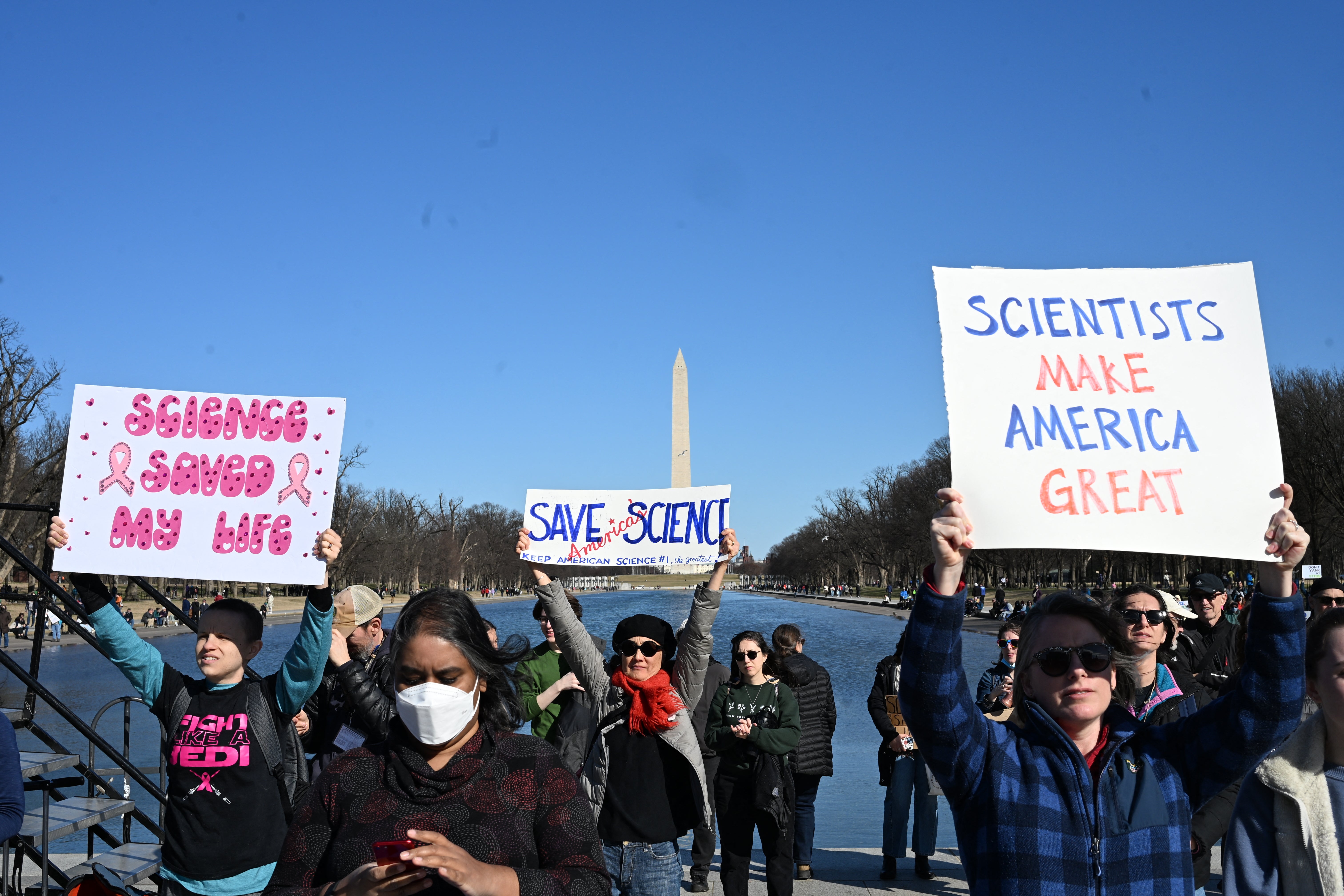Three-quarters of U.S. scientists say they’re considering leaving the country following moves to slash scientific programs by the Trump administration’s Department of Government Efficiency, a poll has found.
In recent days, the administration has laid off researchers at the National Oceanic and Atmospheric Administration and the National Aeronautics and Space Administration. The Department of Health and Human Services is expected to lay off 10,000 workers. The agency oversees the Centers for Disease Control and Prevention and Food and Drug Administration.
There have also been major cuts to funding. NASA is terminating $420 million in contracts not aligned with the White House’s priorities. The National Institutes of Health are cutting grants for Covid research and the Environmental Protection Agency is reportedly targeting environmental grants, according to The Los Angeles Times. Last week, the government terminated at least 68 grants to 46 institutions, totaling nearly $40 million, according to a government website.
These actions, and more, have left people in scientific fields feeling uncertain, and sparked protests across the country.
The survey conducted by the journal Nature said worry among scientists was particularly pronounced among early-career researchers. More than 1,200 scientists responded to the poll. Of the 690 postgraduate researchers who replied, 548 said they were considering leaving. More than 250 of the 340 Ph.D. students surveyed said the same.
“Don’t want to leave, but what’s the alternative?” one postgraduate researcher in a biomedical field responded.
“This is my home — I really love my country,” a graduate student at a top U.S. university who works in plant genomics and agriculture told Nature. “But a lot of my mentors have been telling me to get out, right now.”
She lost her research support and her stipend following the Trump administration’s decision to gut the U.S. Agency for International Development. Her adviser was able to secure emergency funds to support her in the short term.

The Trump administration “has made it very clear” that her area of interest, global food systems, “is not going to be a priority or a focus”, she said. “If I want to work in that space, I’m going to have to find somewhere else that prioritizes that.”
Some international respondents who had moved to the U.S. to work planned to return home. One researcher noted that international universities were “seeing this as a once-in-a-generation opportunity” to recruit.
For others, the future is not as clear, but “anywhere that supports science” is the goal. Many felt like they didn’t have a choice in the matter.
“I am faculty and want to stay as long as I can [to] support my lab and students, but if the NIH is dramatically cut we may not have a choice to stay in the U.S.,” one person wrote.
“I am transgender, and the one-two punch makes it improbable that the life I want to live is a viable option in this country,” another person said.
But, there are some holdouts.
“U.S. academia has the best research facilities,” wrote one person.
“I won’t go anywhere, this is ridiculous,” wrote another.
With reporting from The Associated Press







